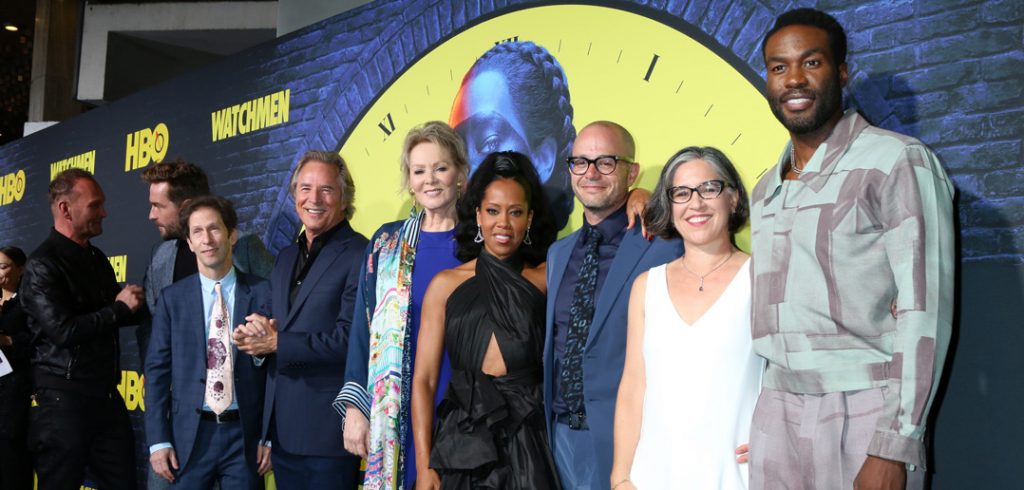Brandy Monk-Payton, professor in the department of communication and media studies and scholar of black cultural studies, said that there has been a cultural shift in the consciousness of the entertainment industry when it comes to recognizing anti-Black racism.
“I think that there’s been sort of increased attention to thinking about the ways the entertainment industry has reproduced structural racism, whether that be behind the scenes, behind the camera, as well as in front of the camera,” she said. “We see an increased urgency around that conversation in a way that sort of did not exist in the early days of the Black Lives Matter movement.”
The Industry Response
When Black Lives Matter first started in 2013, Monk-Payton said, people were still living under the illusion of a “post-racial” moment of the Obama administration. Television addressed racism in the country at the time through “very special episodes” in shows like Law & Order: SVU or Scandal.
Calls for reform are louder now though, she said. Shows and studios are apologizing for past mistakes, and aiming for a more inclusive future. For example, back in June several creators and actors began apologizing for depicting blackface in the past. In response, TV shows such as 30 Rock, Scrubs, the Office, and more, have removed these episodes from streaming platforms.
Monk-Payton said the elimination of blackface episodes is a show of solidarity, with an emphasis on “show.”
“What I find fascinating about the desire to delete these scenes and episodes with an offense is that it’s not actually examining what I think are more insidious logics of racial representation,” she added.
Instead of just removing offensive episodes, which can build up curiosity about them, Monk-Payton said it’s more important “to situate particular film and TV texts within their proper historical context, providing audiences with accurate information in the way that HBO Max decides to preface Gone With the Wind.” (HBO Max briefly pulled the film from their streaming platform in June, before restoring it with intro videos that include a disclaimer about its historical context and depictions of slavery.)
Reboots of white shows with all Black or people-of-color casts are becoming popularized lately, including a recent reenactment of an episode of Golden Girls starring Black actresses Regina King and Tracee Ellis Ross. However, Monk-Payton warned that these reboots need to be mindful of “what happens when you translate a text into a sort of Black space or the sort of minoritarian space and the cultural specificity becomes really important.”
It isn’t enough to just replace the cast members with Black actors. “If you don’t alter it, then you’re in this kind of colorblind sort of space,” she said.
Award Shows
Award shows have long been criticized for the lack of diversity in their nominees and winners. The Academy Awards recently released a new list of qualifications for nominees that emphasizes diversity and inclusion on and off screen, but Monk-Payton thinks there could be more teeth to the requirements. She noted that many past problematic films would actually meet these new requirements, including Green Book, Crash, and perversely, The Birth of a Nation.
What needs to be changed, she said, is the elite group of people within the Academy who can cast votes.
“Widening that aperture [of who can get nominated]doesn’t change or doesn’t sort of really reckon with the sort of people within the Academy who are still going to assign who’s a winner and who’s a loser,” she said, adding that that elitism “disadvantages people of color in the industry.”
While the Emmys haven’t yet released any new eligibility requirements, there were a record number of both nominations and wins for Black actors this year. Zendaya became the youngest and second-ever Black winner for Best Actress in a Drama. But Monk-Payton emphasized that the “fact that she is only the second means that we still have a very long way to go.”
The HBO series Watchmen, which stars Regina King as a Black female police officer, also won several big awards, including Best Limited Series. Monk-Payton was glad to see Watchmen creator Damon Lindelof dedicate his wins to the victims and survivors of the Tulsa Massacre of 1921 and emphasize that it wasn’t his story to tell.
“While I do not think that awards shows ever dictate future programming trends,” she added, “I do think that we need more creatives like Lindelof that understand his position of power if we are to have any hope in fundamentally changing the entertainment industry with respect to racial inclusion and equity.”
The Future of Entertainment
As for the future of entertainment, Monk-Payton thinks there has been a “very visceral shift in perspective and acknowledgement” of structural racism ingrained in the industry, but she is somewhat skeptical this change will last.
“A lot of times in diversity work, it’s just a label. You don’t actually create the long lasting change,” she said. “We have to have a more robust understanding of the problem as we’re diagnosing where the actual problem is.”
She added that in addition to on-screen representation, there needs to be more off-screen representation in labor roles like camera people, hair stylists, makeup artists and other behind-the-scenes staffers.
“That also contributes to what we see on screen and whether we see Black actors and performers and characters as dignified, and how we see Black people as human through invisible labor that goes on behind the scenes.”
Monk-Payton said that there have been some promising moments. Shows like Watchmen help us better understand race in America. Media makers like Ava DuVernay and others who care about social change are helping to “fight the good fight in terms of their content,” she said. The entertainment industry, she said, can do their part by supporting these artists.
“I think it’s about creating a pipeline. It’s about empowering these media makers and performers to really utilize their voice.”

